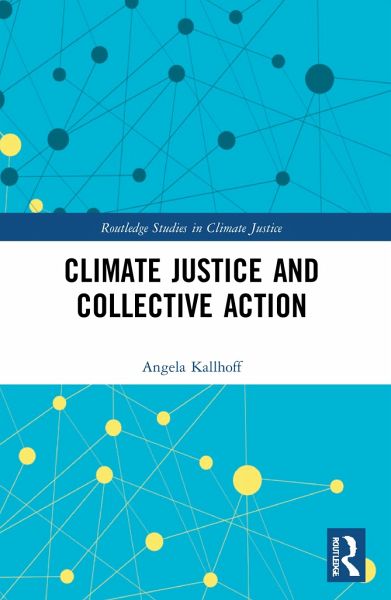
Climate Justice and Collective Action
Versandkostenfrei!
Versandfertig in 6-10 Tagen
43,99 €
inkl. MwSt.
Weitere Ausgaben:

PAYBACK Punkte
22 °P sammeln!
This book develops a theory of climate cooperation designed for concerted action, which emphasises the role and function of collectives in achieving shared climate goals.In debates on climate change action, research focuses on three major goals: on mitigation, on adaptation and on transformation. Even though these goals are accepted, concerted action is still difficult to realize. Climate Justice and Collective Action provides an analysis of why this is the case and develops a theory of climate cooperation designed to overcome the existing roadblocks. Angela Kallhoff starts with a thorough ana...
This book develops a theory of climate cooperation designed for concerted action, which emphasises the role and function of collectives in achieving shared climate goals.
In debates on climate change action, research focuses on three major goals: on mitigation, on adaptation and on transformation. Even though these goals are accepted, concerted action is still difficult to realize. Climate Justice and Collective Action provides an analysis of why this is the case and develops a theory of climate cooperation designed to overcome the existing roadblocks. Angela Kallhoff starts with a thorough analysis of failures of collective action in the context of climate change action. Taking inspiration from theories of water cooperation, she then establishes a theory of joint action that reframes climate goals as shared goals and highlights the importance of adhering to principles of fairness. This also includes an exploration of the normative claims working in the background of climate cooperation. Finally, Kallhoff puts forward proposals for a fair allocation of duties to cooperate with respect to climate goals.
This book will be of great interest to students and scholars of climate action, climate justice, environmental sociology and environmental philosophy and ethics more broadly.
In debates on climate change action, research focuses on three major goals: on mitigation, on adaptation and on transformation. Even though these goals are accepted, concerted action is still difficult to realize. Climate Justice and Collective Action provides an analysis of why this is the case and develops a theory of climate cooperation designed to overcome the existing roadblocks. Angela Kallhoff starts with a thorough analysis of failures of collective action in the context of climate change action. Taking inspiration from theories of water cooperation, she then establishes a theory of joint action that reframes climate goals as shared goals and highlights the importance of adhering to principles of fairness. This also includes an exploration of the normative claims working in the background of climate cooperation. Finally, Kallhoff puts forward proposals for a fair allocation of duties to cooperate with respect to climate goals.
This book will be of great interest to students and scholars of climate action, climate justice, environmental sociology and environmental philosophy and ethics more broadly.














